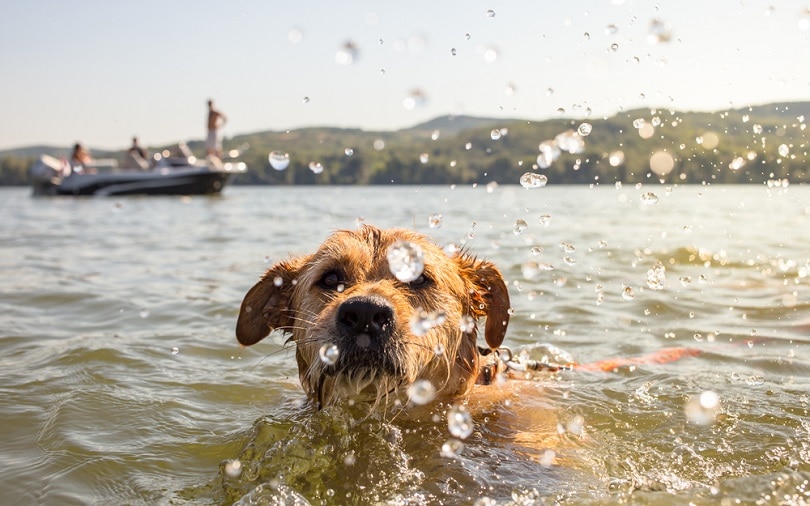Is there any better way to enjoy the warm months of summer than with your best friend? Summer is ideal for walks in the park or a rousing game of fetch. It’s also a time to practice safe playtime. Rising temperatures can affect both you and your pup adversely if you’re not careful. Our guide will offer advice for different scenarios when you’re out enjoying the pleasant weather.
The key to a safe summer is using your best judgment, whether at the lake, on the road, or on a walk. It’s easy to let the heat of the moment take over and push for just one more game or go a bit farther down the trail. It’s essential to keep safety top of mind, especially with puppies and senior pets, but also brachycephalic breeds that are particularly prone to overheating.
The 7 Summer Safety Tips for Dogs
1. Jumping in the Lake
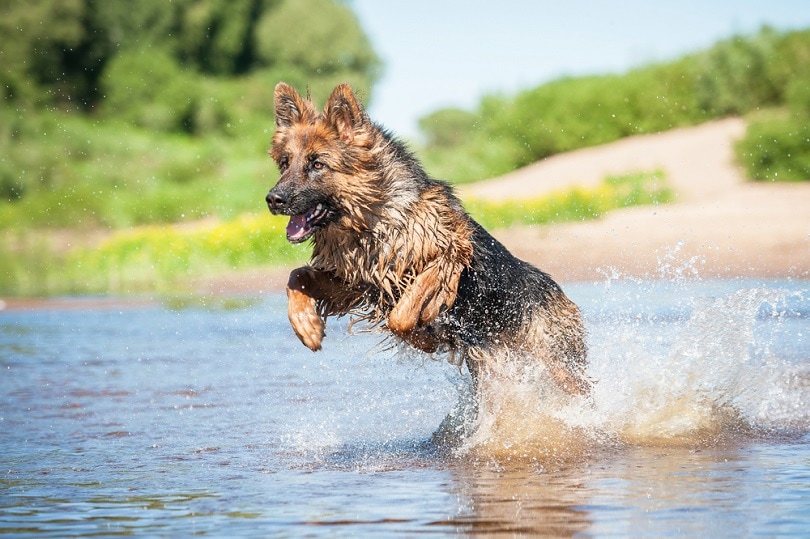
It’s always fun to take a dip to cool off when it gets hot. Remember that swimming is a strenuous activity, even for people. Don’t let you and your pup get too caught up in the action that you avoid taking regular breaks. Also, your pet can get a sunburn, just like you.
- Stick to shallow waters.
- Limit time in the sun and lake during 10 a.m.-2 p.m.
- Avoid short haircuts, especially for cold-weather breeds like Samoyeds.
- Invest in a doggy life vest.
- Steer clear of currents and riptides.
2. Turn Down the Heat
Wondering how to keep dogs cool in summer? One of the most common and potentially dangerous conditions is heatstroke. Brachycephalic, or short-faced, breeds, such as French Bulldogs, have a tougher time dealing with hot weather than other pups. Dogs pant to cool themselves. The head and muzzle shape of brachycephalic pups makes it more difficult for them to lower their body temperature as efficiently.
However, any dog can get overheated. That makes it imperative to recognize the early warning signs of heat exhaustion. If you suspect it, get your pet out of the sun and into the shade. Place a cool, damp towel under their body and wet them. You can also offer water so your pup can have a drink. Make sure the water you use on your dog is not too cold, as it may cause shivering and lead to further heat production.
- Drooling
- Labored breathing
- Red gums
- Collapse
Always avoid walking and exercising your dog during the warmest hours of the summer months, as many dogs will not know how to stop and tell you they’re too hot until it’s too late. Engage in indoor games and puzzles to keep them occupied and stimulated until the outside temperatures permit walks late in the evenings or first thing in the morning.
3. Keep Hydrated and Well-Fed
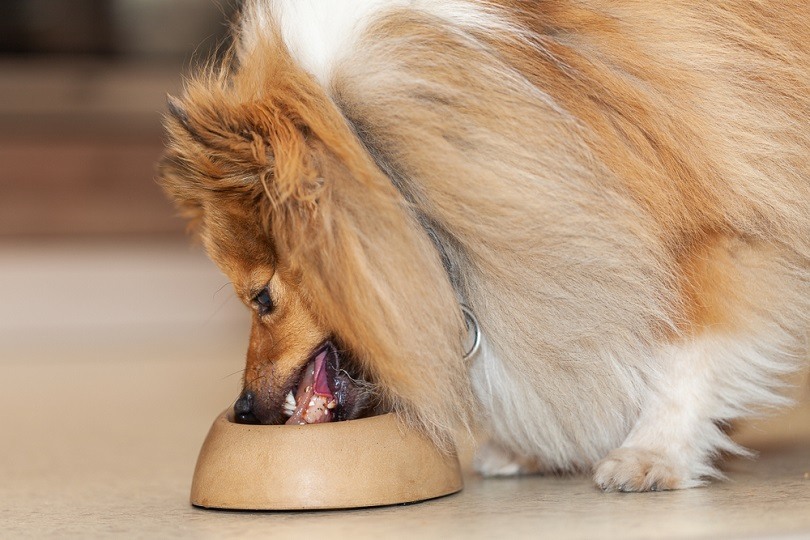
It’s easy to forget to eat and drink when you’re having fun. However, it’s essential to keep your pet — and yourself — hydrated. It’s vital to have fresh food and water available at all times.
- Thick saliva
- Lethargy
- Heavy panting
- Pale gums
- Loss of appetite
4. Beware of Hot Ground
We’ve all experienced it: You’re at the beach, and you decide to go for a swim. What you didn’t plan on was how hot the sand is. It’s the same problem for your pooch, whether at the lake or walking in the neighborhood. The sidewalks heat up fast too, after all. That’s why it’s better to take your daily stroll in the morning or evening when it cools down sufficiently.
5. Fleas and Ticks
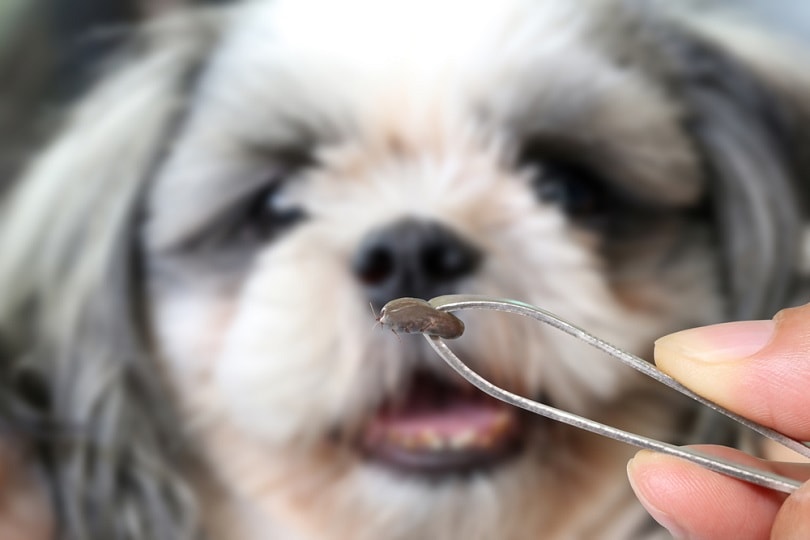
Almost everything is great about summer, except the inevitable bugs and pests. Since you’re spending more time outdoors, it’s vital to protect your pup against fleas and ticks. Remember that these critters can carry Lyme disease and Rocky Mountain spotted fever. We suggest checking your dog over when you get back home. Pay particular attention to their ears and head.
6. The Big Bang
Some pets have a hard time coping with fireworks and thunderstorms. They may show signs of acute stress and end up in odd hiding places. Some dogs can settle down if you give them a weighted blanket. You can also try desensitizing your pup during the off-season with recordings of storms so they can get used to the noise. You should also discuss the situation with your vet if these measures don’t work.
7. Hitting the Road
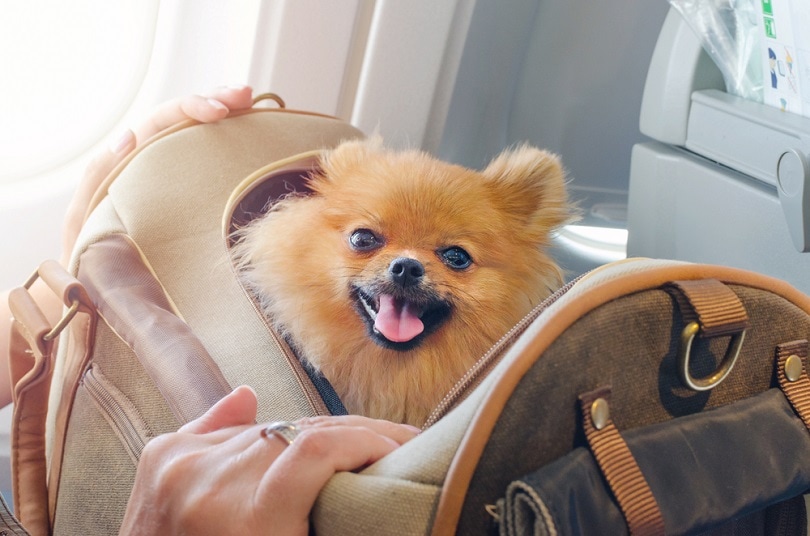
Summer often means travel, whether by car, RV, boat, or plane. If you’re going to board your pup, you must get your pet up to date on all vaccinations. Many places won’t accept animals that are not current. The same thing applies to airlines that may not offer travel options during the summer. We strongly urge you to call ahead to verify what you need to do.
You should also check with any hotels or campgrounds that you plan to visit to make sure that they are pet-friendly. Many sites will not permit you to tie out your dog. We also suggest that you look for a local vet or boarding facility in case the need arises.
- Allow your dog to get used to their crate or the car before you travel, especially if it’s their first time.
- Place a cooling pad inside the crate or back seat where your dog is to keep your pet comfortable.
- Always bring a travel water bowl and plenty of fresh water with you.
- Never leave your pup unattended in a car.
Conclusion
Summer is an excellent time to enjoy the outdoors and fresh air. It’s also a time to keep safety at the forefront, no matter how you choose to spend the days with your pup. A dog can’t tell you if they feel overheated or dehydrated. That’s why it behooves pet owners to recognize the signs of common ailments, such as heatstroke, but even more importantly to avoid walking or exercising your dog during the warmest part of the day. There are plenty of mental stimulation games you can play with your dog inside your home until the temperatures cool down a bit. It’s the best way to ensure a happy, safe summer for everyone.
See Also:
- Can Cats Get Sunburns? What You Need to Know!
- What Temperature Is Too Hot to Walk a Dog? (Vet Answer)
Featured Image Credit: Lunja, Shutterstock

